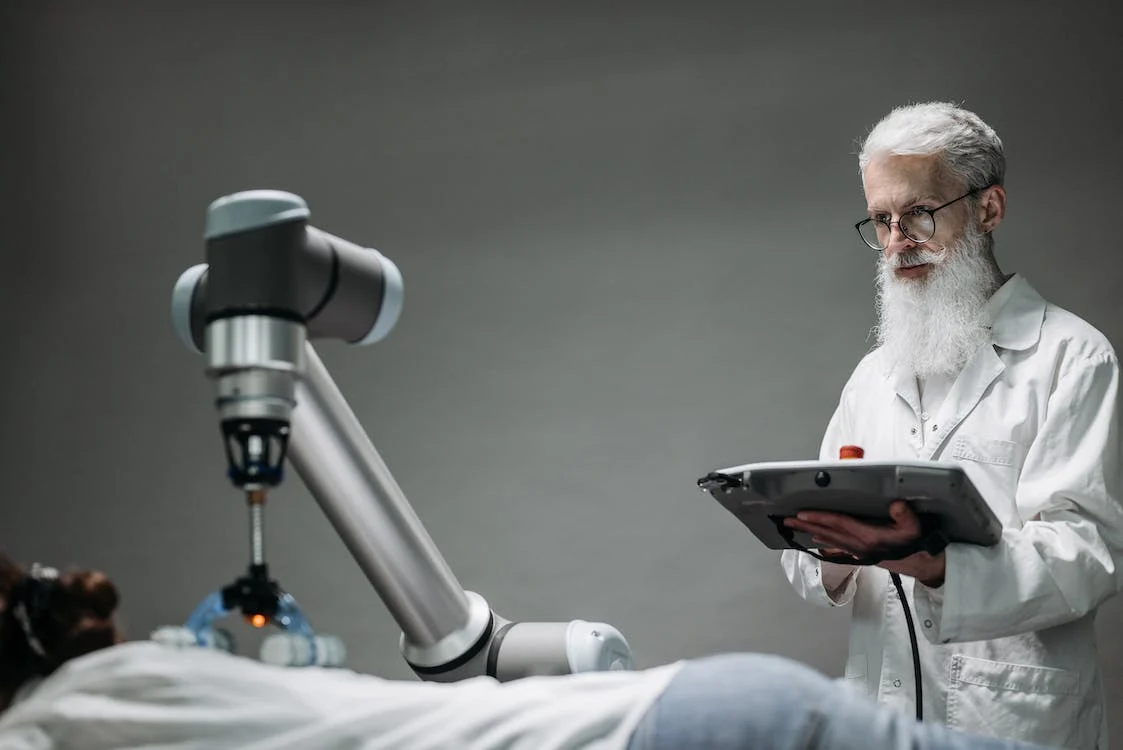
The term “Artificial Intelligence (AI) in healthcare” is buzzing across scientific communities and the media alike. There’s a good reason for this excitement, as AI technologies have the potential to revolutionize various aspects of healthcare, from diagnostics to personalized treatment. In this comprehensive blog post, we will delve into the significant contributions of artificial intelligence in healthcare, the challenges faced, and what the future holds.
The Rise of AI in Healthcare
The integration of artificial intelligence in healthcare is not a novel concept; it dates back to the late 20th century. However, advances in machine learning algorithms and the availability of large-scale healthcare data have propelled AI to the forefront of medical research and practice. The technology promises not only to automate routine tasks but also to provide data-driven insights that could lead to better patient outcomes.
Key Applications of Artificial Intelligence in Healthcare
Diagnostics and Imaging
AI algorithms can sift through massive datasets to identify subtle patterns that might be overlooked by human professionals. For instance, machine learning models have proven effective in interpreting medical images in radiology, detecting anomalies in ECG and MRI scans, and even identifying cancerous cells in pathology slides.
Drug Discovery and Development
AI models are increasingly used in pharmacology for predicting drug interactions, identifying potential drug candidates, and even simulating clinical trials. Artificial intelligence in healthcare is reducing the time-to-market for essential medicines.
Personalized Medicine
AI technologies enable clinicians to tailor treatments to individual patients based on their genetic makeup, lifestyle, and other factors. Personalized treatment plans often yield better results than a one-size-fits-all approach.
Telemedicine and Remote Monitoring
Especially in the wake of the COVID-19 pandemic, AI-powered telemedicine has been a game-changer, making healthcare more accessible. AI algorithms can also analyze data from wearable devices, making remote monitoring more efficient.
Ethical and Regulatory Concerns
While the contributions of artificial intelligence in healthcare are enormous, they come with ethical and regulatory challenges. Data privacy is a significant concern, as healthcare data are often sensitive. Moreover, how these AI models make decisions remains a “black box,” which could pose problems in clinical settings.
Future Prospects
The future of artificial intelligence in healthcare looks promising. With advancements in natural language processing and robotics, AI could further assist in surgical procedures, real-time diagnostics, and even mental health treatment. However, a multidisciplinary approach involving medical professionals, data scientists, and ethicists is crucial for the responsible development and deployment of AI in healthcare.
10 Related FAQs
- What is artificial intelligence (AI) in healthcare?
AI in healthcare refers to the use of machine learning algorithms and AI technologies in various healthcare applications, from diagnostics to treatment. - How does AI work in medical imaging?
AI algorithms can analyze medical images to detect abnormalities and assist in diagnostics. - Is AI in healthcare reliable?
While promising, AI technologies are still in developmental stages and should complement, not replace, medical professionals. - What are the challenges of implementing AI in healthcare?
Data privacy and ethical concerns are the primary challenges. - Is AI in telemedicine effective?
AI has made telemedicine more efficient and accessible, especially during the pandemic. - How is AI used in drug discovery?
AI can analyze biological data to identify potential drug candidates and predict interactions. - What are the ethical concerns regarding AI in healthcare?
Data privacy and the explainability of AI decisions are the main ethical concerns. - How does AI contribute to personalized medicine?
AI can analyze individual patient data to recommend personalized treatment plans. - Are there any regulations for AI in healthcare?
Regulations are still emerging and vary by country. - What is the future of artificial intelligence in healthcare?
AI has a promising future in healthcare, with ongoing research and growing applications.
Conclusion
The integration of artificial intelligence in healthcare has the potential to dramatically alter medical practices for the better. However, ethical and regulatory hurdles need to be addressed for the technology to reach its full potential. A balanced and responsible approach to AI can revolutionize healthcare, making it more efficient, personalized, and accessible.
So, the next time someone mentions “artificial intelligence in healthcare,” you’ll not only know what they’re talking about but also understand the depth and breadth of this fascinating field. The future of healthcare is not just human; it’s a harmonious blend of human expertise and artificial intelligence.

